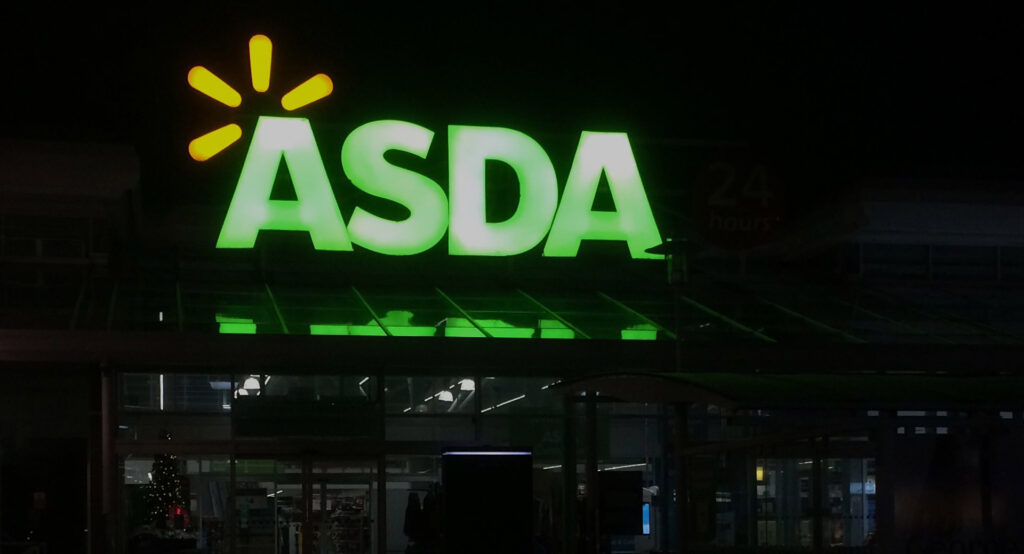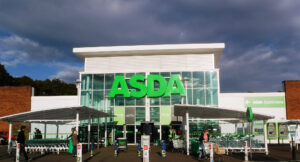14 Surprising Facts on Asda You Didn’t Know!
As you push your trolley through the aisles of Asda, the bright colours and bustling crowds can make it easy to forget the fascinating history and surprising facts behind this supermarket giant. From humble beginnings as a farmer’s co-operative to its current status as the second-largest supermarket chain in the UK, Asda has a story that is as rich and varied as the products it sells.
So, fasten your seatbelt and get ready for a thrilling ride as we take you on a journey through the lesser-known facts about Asda that will leave you awestruck!

Asda’s origins can be traced back to a group of Yorkshire farmers who formed the “West Riding Farmers’ Association” in the 1920s.
1 This co-operative was created to help farmers pool their resources and sell their products more effectively. In 1949, the association opened its first self-service store in Leeds, which became the first Asda supermarket.
The store was a huge success, and the Asda brand continued to expand rapidly throughout the 1950s and 60s, with new stores opening across the UK. The company’s focus on providing affordable food and other essentials to local communities remains a core part of its mission to this day.
The name “Asda” is an abbreviation of “Associated Dairies”, which was the name of the company’s predecessor.
2 Asda’s origins can be traced back to a group of Yorkshire farmers who formed the “West Riding Farmers’ Association” in the 1920s to help farmers sell their products more effectively.
Over time, the association expanded into other areas such as retail and eventually became known as Associated Dairies. When the company opened its first self-service store in 1949, it used the name Asda, which was later adopted as the company’s official name in 1965.
Today, Asda is known for its wide range of products beyond just dairy products, but the company’s original roots in the farming and dairy industries are still an important part of its heritage.
Walmart, the world’s largest retailer, acquired Asda in 1999 in a deal that valued the company at £6.7 billion.
3 At the time, it was the largest-ever foreign acquisition by a US company. The acquisition brought Walmart into the UK market and allowed Asda to benefit from Walmart’s expertise and resources in areas such as logistics and supply chain management.
Today, Asda is a subsidiary of Walmart, and the two companies continue to work closely together to drive growth and innovation in the retail industry.
Asda was the first UK supermarket to introduce a loyalty card scheme called the “Asda Price Guarantee” in 2010.
4 The scheme allows customers to enter their Asda receipts into a website and compare the prices of their purchases to equivalent products sold by competitors such as Tesco, Sainsbury’s, Morrisons, and Waitrose.
If the total price of the equivalent items is cheaper at another supermarket, Asda promises to give customers a voucher for the difference plus an additional penny.
The scheme was introduced as part of Asda’s commitment to providing customers with the best possible value for money and has been successful in driving customer loyalty and repeat business.
Asda is the second-largest supermarket chain in the UK by market share, with Tesco being the largest.
5 Asda operates over 600 stores across the UK and has a market share of around 15%, while Tesco has over 3,400 stores and a market share of around 27%.
Other major supermarket chains in the UK include Sainsbury’s, Morrisons, and Aldi.
Asda is one of the largest private sector employers in the UK, and as of 2021
6 It employs over 145,000 people across its stores, distribution centres, and head office. However, there are other companies and organizations that employ more people in the UK, such as the National Health Service (NHS), which is the largest employer with over 1.4 million staff, and the retail giant Amazon, which also employs a significant number of people in the UK.
Asda has a range of own-brand products, including their “Smart Price” range, which is aimed at budget-conscious shoppers.
7 The Smart Price range includes a variety of food and household items, such as canned goods, frozen foods, and cleaning products, all offered at low prices.
Asda also offers other own-brand ranges, including “Chosen by You” for mid-range products, and “Extra Special” for premium products. These own-brand ranges are an important part of Asda’s business strategy, as they allow the company to offer customers a wide range of products at different price points, while also maintaining control over the quality and pricing of those products.
Asda has a price promise that states they will refund the difference if a customer finds a cheaper price elsewhere.
8 To take advantage of the scheme, customers must enter their Asda till receipt details on the Asda website, which will then compare the prices of their items with those of Tesco, Morrisons, Sainsbury’s, and Waitrose.
If a comparable item is found to be cheaper at one of those stores, Asda will issue a voucher for the difference in price, which can be used on the customer’s next Asda shop. The scheme is designed to reassure customers that they are getting the best value for their money and to encourage them to shop at Asda.
Asda’s clothing brand, George, is the UK’s fourth-largest clothing retailer by volume and has won multiple awards for its products.
9 George is the fourth-largest clothing retailer in the UK by volume, behind only Marks & Spencer, Primark, and Next. George offers a wide range of clothing for men, women, and children, as well as footwear and accessories.
The brand is known for its affordable prices, with many items priced at under £10, and has won multiple awards for its products, including the “Best Value Supermarket Clothing Brand” at the 2019 GlobalData Customer Satisfaction Awards.
Asda has a range of community initiatives aimed at supporting local communities and reducing food waste.
10 One of these initiatives is the “Fight Hunger Create Change” campaign, which was launched in 2018 in partnership with the anti-poverty charity, the Trussell Trust, and the food redistribution charity, Fare Share. As part of the campaign, Asda pledged to donate £20 million to the two charities over three years, as well as providing surplus food from its stores to local charities and food banks.
In addition to this campaign, Asda also has a surplus food donation program called “Sustainability Store”. The program involves donating surplus food from Asda stores to local charities and community groups, which helps to reduce food waste and supports those in need.
Asda also supports local communities through other initiatives, such as its “Community Life” program, which provides funding and resources to local community projects, and its “Green Token Giving” program, which allows customers to vote for local charities to receive funding from Asda. Overall, these initiatives demonstrate Asda’s commitment to supporting local communities and reducing food waste.
Asda has a sustainability program, and it is called “Project Green”.
11 “Project Green” is a program launched in 2018 by Asda, which aims to make the company more sustainable by reducing its carbon footprint and waste, and by promoting sustainable sourcing practices. As part of this program, Asda has committed to reducing its greenhouse gas emissions by 50% by 2025, and to reducing its plastic packaging by 15% by 2021.
In addition to these targets, Asda has implemented a number of sustainability initiatives, such as switching to renewable energy sources for its stores, introducing more sustainable packaging materials, and working with suppliers to promote sustainable sourcing practices.
While Asda does not have a specific program called “Project Renewal”, it is possible that this could be a reference to the company’s broader efforts to become more sustainable and reduce its environmental impact through initiatives such as “Project Green”.
Asda operates its own fleet of lorries to transport products to its stores, which is one of the largest in the UK.
12 The company has a fleet of over 3,000 vehicles, including articulated lorries and smaller delivery vans, which are used to transport products from Asda’s distribution centres to its stores across the country.
The company also uses a range of transportation technologies and practices to improve efficiency and reduce its environmental impact, such as fuel-efficient vehicles and route optimization software.
The use of its own fleet allows Asda to have greater control over its supply chain and delivery schedules, which helps to ensure that products are delivered to stores on time and in good condition.
Asda’s headquarters is located in Leeds, West Yorkshire, UK, and is commonly known as “Asda House”.
13 The building is located in the city center and serves as the main office for Asda’s operations, including its retail, logistics, and support functions.
The building was first constructed in the 1970s and has undergone several renovations and expansions over the years to accommodate the company’s growing workforce.
Asda House is a distinctive landmark in Leeds and is known for its modern architecture and distinctive green glass exterior.
Asda has an annual charity event called “Tickled Pink”, which is aimed at raising money for breast cancer research and awareness.
14 The event was first launched in 1996 and has since become a major fundraising initiative for Asda, raising millions of pounds for breast cancer charities over the years.
During the Tickled Pink campaign, Asda stores across the UK sell a range of pink-themed products, with a percentage of the sales proceeds going towards breast cancer charities. The campaign also includes a range of other fundraising activities, such as sponsored walks and runs, charity auctions, and employee fundraising events.
In addition to the Tickled Pink campaign, Asda also supports a range of other charitable causes through initiatives such as its “Community Life” program and the “Green Token Giving” program, which allow customers to vote for local charities to receive funding from Asda. Overall, these initiatives demonstrate Asda’s commitment to supporting important social causes and giving back to the communities it serves.




